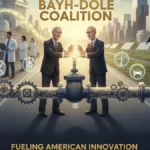Next month, Titan Books is publishing Blood on the Mink, a ‘lost’ novel penned by sci-fi master Robert Silverberg.

Silverberg is the author of a number of genre classics, most famously while teamed up with Issac Asimov for books like The Positronic Man and Nightfall, though also responsible for dozens of great novels on his own, along with hundreds of short stories.
He’s one of the most prolific and recognizable names in the genres. Silverberg also won the Hugo for his short fiction on five occasions, and is considered one of the ‘Grandmasters’ of Science Fiction by the Science Fiction & Fantasy Writers of America.
Blood on the Mink was originally written over 50 years ago, when it appeared, under a pseudonym in the final issue of Trapped Detective Story Magazine, one of the last remaining pulp magazines.
When the magazine went under, so too did the few remaining copies and the rights to print more, meaning that the book hasn’t been seen in print in over half a century, and if any copies remain of that last issue of Trapped, I would be very surprised.
In a practical sense, this means that Blood on the Mink is seeing the light of day for the first time. TGDaily has today gotten an exclusive excerpt from the book, which is posted below.
The novel tells the story of a government agent sent undercover into a Philadelphia crime ring, where a forger is turning out expert copies of US currency. He poses as an important figure in a similar crime ring on the West Coast, but when his disguise begins to unravel, it puts him in grave danger.
The new book will contain an afterword written by Silverberg himself, which explain’s the novel’s origins, and the original printing. In addition, the book contains two of Silverberg’s short stories with a similar heritage, and which have similarly been lost for over 50 years.
Titan is releasing Blood on the Mink next month from their Hard Case Crime novel line. Check TG Daily for our review of the book when it’s released.
The following is a TGDaily exclusive excerpt from Blood on the Mink:
—
At half past eight I arrived at Klaus’ suite at the Burke. Klaus was long past the stage of sending chauffeurs to transport me; I took a cab.
One of the goons answered the door. But it was Minton who came from within to greet me. He gave me a cold glare of pure hatred. I smiled warmly in return.
“Take me to your leader,” I said lightly.
He muttered, “Lowney, one of these days—”
“Go on,” I said. “One of these days what?” My fists opened and closed a couple of times, meaningfully.
Minton scowled. “Skip it. The boss is expecting you inside.”
“Is he alone?”
“He’s got company. Ricky Chavez is with him.”
“That’s nice,” I said. “I haven’t seen my old pal Ricky since he got out of reform school. Which way?”
“You know the way by now.”
“Show me, pal. I’m a guest here.”
Minton said something under his breath and led me through the suite to Klaus’ office. He knocked, and Klaus said to come on in. Minton opened the door for me.
Klaus and Chavez were sitting at the table, both of them facing the door, with a big pile of probably phony bills in front of them. Klaus gave me a look of sullen dislike. The expression on Ricky Chavez’ face was a totally blank one.
I strode forward, coming in on an angle to block my face from Klaus. I thrust my hand at Chavez and said heartily, “Hello there, Ricky-boy! How about a big handshake for your old buddy Vic Lowney?”
And I winked as hard as I knew how.
Chavez could have blown the whole thing up right then and there. All he needed to do was say, “Who the hell are you, buster?” But he didn’t. He was smarter than that. He threw me a quick glance that said, “You better be prepared to explain this deal later, Jack.” Then he stood up and extended his hand.
“Hello, Lowney,” he said without enthusiasm.
“You boys sound like great pals,” Klaus said.
“We are,” I told him. “We were juvenile delinquents together. Then we grew up and became adult delinquents.
How you been, Ricky?”
“No complaints,” he said thinly. “How’s the wife, Lowney?”
“You been reading the gossip columns? Last I heard I didn’t have a wife.”
“Just wondering,” Chavez said. “Must have been some other guy I heard got married last month.”
He gave me a sly look. I knew damned well Lowney didn’t have any wives. Chavez was just trying to confuse me a little, to see how much I knew about Lowney, to find out just what in blazes I was up to. I favored him with a brotherly smile.
He was a dapper little fellow, no more than five feet six, impeccably dressed. There was Latin-American blood in him, and as so often happens he had a kind of hybrid attractiveness, with his dark glossy hair, even features, and smooth Latin look.
They said he was hell on wheels with women, and no wonder. But there was a steely glint in his eyes, and I knew he could handle himself with a gun. Un hombre muy tough, Chavez was. And knew it.
I decided on the informal approach.
“You have a good flight, Chavez?”
“Lousy. Storms all the way this side of the Rockies. How long you been here, Lowney?”
“Since Tuesday. The town’s a drag.”
“I hear you got shot at,” he said.
“Only once. Dull town. Where’d you hear?”
“I told him” Klaus put in. “I thought he’d be amused.”
I laughed. “Yeah. It was a riot.” Without being asked, I pulled the decanter of Scotch across the table toward me and filled my glass, dumping a couple of cubes in from the ice-bucket.
Klaus wasn’t minded to be very hospitable. I could tell that he and Chavez had already talked business, and if they hadn’t agreed on terms they were probably pretty close. I was being frozen out, that was obvious. There was a definite sense of a link between them that didn’t include me. I sipped my drink.
Chavez picked up a stack of paper money and fondled it. “They turn out a nice product here, eh, Lowney?”
“Passable.”
“I’ll say. They tell me you aren’t willing to pay very much for it, though.”
I shrugged “I made what I considered was a fair offer.”
“Mr. Klaus here didn’t think so.”
I said to Klaus, “Does this mean you two have already clinched a deal?”
Klaus gave me the Mona Lisa smile. “We’ve discussed some terms. There’s no agreement yet.”
“I’m still in the running, then?”
“The only one who’s eliminating you is yourself, Lowney,” Klaus said gently. “There was no real reason for me to call Chavez here in the first place. Except that you decided you wanted to bleed me.”
The atmosphere in the room was getting frostier by the moment. And I was sitting with my back to the door, which I didn’t care for at all. If Klaus had reached terms with Chavez, they might have decided to elect me odd man out. Unobtrusively I slipped out of my chair and began to wander around the room, taking care to keep myself close to the table. Any bullet aimed at me would have to pass through Klaus or Chavez first,
I said, “Okay, let’s talk turkey. Tell me what your bid is, Chavez. If I can undercut it, I will. If I can’t, I’ll be on the next plane out of here.”
Klaus said, “That isn’t a businesslike way of doing things, Lowney.”
“Why not?”
“This isn’t exactly a public auction. I’ve got a better idea.”
“Which is?”
“Written bids.” He handed each of us a sheet of paper and an envelope. “Write down your best price and seal it in the envelope. I’ll open them after you’ve gone and I’ll notify the successful bidder. I might warn you, Lowney, that Chavez knows your bid and plans to raise it substantially, so if you want the contract you’d better be prepared to back down a ways.”
I sat down again—at the side of the table, with my eyes on the door. Klaus was fidgeting. Shielding his paper, Chavez scribbled something quickly and put the paper in the envelope. Staring off into space, I tried hard to look like I was faced with a difficult decision.
After a long moment I uncapped the pen and wrote, My best offer is eight cents on the dollar, pickup in Philly and transcontinental transport at our expense. Not a penny higher. Lowney.
I sealed the envelope and handed it to Klaus. He put it in his desk without looking at it.
“All right,” he said. “So much for business. You fellows in the mood for some cards?”
Chavez was. I went along.
Klaus pressed a buzzer and Carol entered, carrying a tray with some decks of cards and chips. She was wearing a blue cocktail dress that showed just about everything she had above the waist, and she took good care to bend way over when she put the cards down. When she had, she circled behind Klaus and Chavez and, facing me, silently shaped the word Careful with her lips, and rolled her eyes toward the door. Then she tiptoed out.
A three-man card game can be pretty dull unless it’s for blood. This one was. After half an hour I found myself behind some four hundred bucks, and a little while later I was down a thousand and some. My luck started to change, and I began to catch up. Carol kept going in and out, filling our glasses, but I didn’t drink much.
Klaus and Chavez were watching me closely. So far as I could tell the cards were straight and there was no collusion between the two of them. But I had the impression Klaus was waiting for a chance to catch me cheating and have me taken care of.
I didn’t give him the opportunity. I played it straight and hard, wiggled out of the hole, and after a spell I was about even, with Chavez maybe fifty ahead and Klaus fifty behind. I tossed in my cards.
“I’ve had it,” I said. “I think I’ll take off.”
“Stick round,” said Klaus. “The evening’s young.”
“Not for me. I’ve had a busy day.” I walked quickly toward the door and yanked it open.
One of Klaus’ goons was standing there with a blank look of amazement on his face. I dragged him into the room. Turning to Klaus, I said, “What was this one doing there?”
“He’s my bodyguard,” Klaus said glibly. “Whenever I’m alone with strangers he’s posted out there. He’s a hundred percent trustworthy.”
It wasn’t a very probable story, but I couldn’t argue with it. Whatever plans Klaus might have had for ambushing me this evening, they had evaporated with nothing coming of them.
I said, “Okay. Will you be in touch with me about the contract?”
“I’ll let you know who had the high bid,” Klaus said. “Don’t call us. We’ll call you.”
“Any way you want. Goodnight, Klaus. See you back in L.A., Chavez.”
“Hold on,” Chavez said, getting up. “I think I’ll be moving along too.”
Klaus looked displeased. “Stick around a while, Ricky. It’s early yet.”
Chavez shook his head. “I’m not used to this time zone yet. I can use some sleep. Anyway, I want to have a little chat with my old buddy Vic here.”
We walked out together—past the goons, past Minton, past Carol, past the whole organization with which Klaus had surrounded himself. While we waited for the elevator, Chavez said conversationally, “Where you staying?”
“The Penn Plaza. You?”
“The Bingham.”
Minton appeared abruptly. He said, “Mr. Klaus says to wait a moment, he’ll let you have a chauffeur to take you home.”
“Never mind,” Chavez said. “We’ll take a cab.”
“Suit yourself,” Minton said, and went back inside. The elevator arrived. We got in and the door slid smoothly shut, as though flowing on oil.
Chavez leaned against the rail and said, “You were pretty smooth in there, man.”
“Thanks. You were okay yourself, Chavez. You’ve got good reactions. Anybody else might have given me away the second I walked through the door.”
“How dumb do you think I am?”
“Not very. I think you’re a hell of a shrewd cookie, Chavez. If you don’t mind my saying so.”
He seemed to lose interest in me. The elevator continued its long glide down from the penthouse, and Chavez took out what looked like a gold toothpick and set to work on his molars. The elevator arrived at the lobby. We strolled out, into the coolish night.
There was a cab waiting at a hack stand on the corner. I started to signal it, but Chavez caught my arm and dragged it down. “Don’t.”
“Why not?”
“I’m not ready to go home,” he said. He pointed across the street, to a neon bar sign. “Let’s go get a couple of drinks. I want to talk to you, man.”
I didn’t object. We crossed the street, but as we got to the bar the neon sign winked out.
“What the hell?” Chavez grunted.
“It’s 12:01 Saturday night,” I said. “Which means it’s Sunday morning. Which means you can’t legally buy a drink in Philadelphia.”
Chavez delivered himself of two short, emphatic sentences that would have sizzled the ears of any loyal inhabitant of the City of Brotherly Love. Then he said, “We’ll go to my place instead.”
He didn’t wait for my opinion. He waved for the cab I had tried to signal, and we got in. We rode to the Bingham in silence. It was an old-line hotel, well upholstered and conservative-looking. We entered Chavez’ sprawling suite on the eighth floor, and he locked and chained the door carefully.
Then he whirled around to face me. I had half a foot of height on him, but he glared up commandingly all the same.
“All right, buster,” he said frigidly. “We both know you aren’t Vic Lowney. I want to know who the hell you are, man.”






